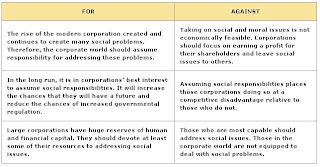Sedition and Binayak Sen
What are the criminal charges impinging on free speech?
In keeping with the reasonable restrictions allowed by the Constitution on free speech, there are criminal provisions against defamation, sedition, blasphemy, contempt of court and hate speech. The defence available against defamation is that the words in question should be substantially true and that they should have been uttered or written in the public interest. The plea of truth is allowed as a defence at least in theory against the contempt charge as well. The blasphemy provision is meant to penalize only those insults to religion that have been committed with a deliberate and malicious intention. The hate speech provisions often fall in the political domain, as they seek to punish those who deliver inflammatory speeches promoting enmity between different groups or prejudicing national integration. Mahatma Gandhi, who was himself convicted for sedition.
Isn't the sedition provision introduced by the British contrary to the spirit of free speech guaranteed by the Constitution?
In a landmark judgment delivered in 1962 in the Kedar Nath Singh vs State of Bihar case, the Supreme Court upheld the constitutionality of the sedition provision contained in Section 124A of the IPC. But for it do so subject to the condition that the sedition charge can be made only against those who misuse their freedom of speech to instigate an armed rebellion against the state. The 1962 verdict was meant to reconcile conflicting interpretations of Section 124A made by two top judicial bodies during the colonial period. Judging the 1898 sedition provision on the touchstone of the constitutional free speech guarantee, a five-judge bench of the Supreme Court, headed by the then CJI B P Sinha, opted for the federal court approach of raising the bar for the invocation of Section 124A. Keeping in mind the reasons for the introduction of Section 124A and the history of sedition, the section must be so construed as to limit its application to acts involving intention or tendency to create disorder, or disturbance of law and order, or incitement to violence, the Supreme Court ruled, in a judgment that still holds the field.
How did a rural health and human rights activist like Binayak Sen get convicted for sedition?
The controversial judgment delivered by a Raipur sessions court on December 24 held Binayak Sen guilty not so much for what he said or wrote but for what he allegedly did. He has been handed the life sentence for conspiring with two others to commit sedition. His alleged crime — he couriered seditious letters from a jailed Maoist leader to his associates.
Have there been other recent instances of the sedition charge being used?
One prominent case booked a month ago was against activist-writer Arundhati Roy as a sequel to her pro-Azadi speech on Kashmir at a meeting in Delhi. Curiously, this case was ordered by a magistrate even after the police had given a status report saying that Roy's speech did not constitute sedition. The police report itself was in tune with home minister P Chidambaram's statement that no action could be taken against Roy in keeping with the letter and spirit of the law.

Comments
Post a Comment